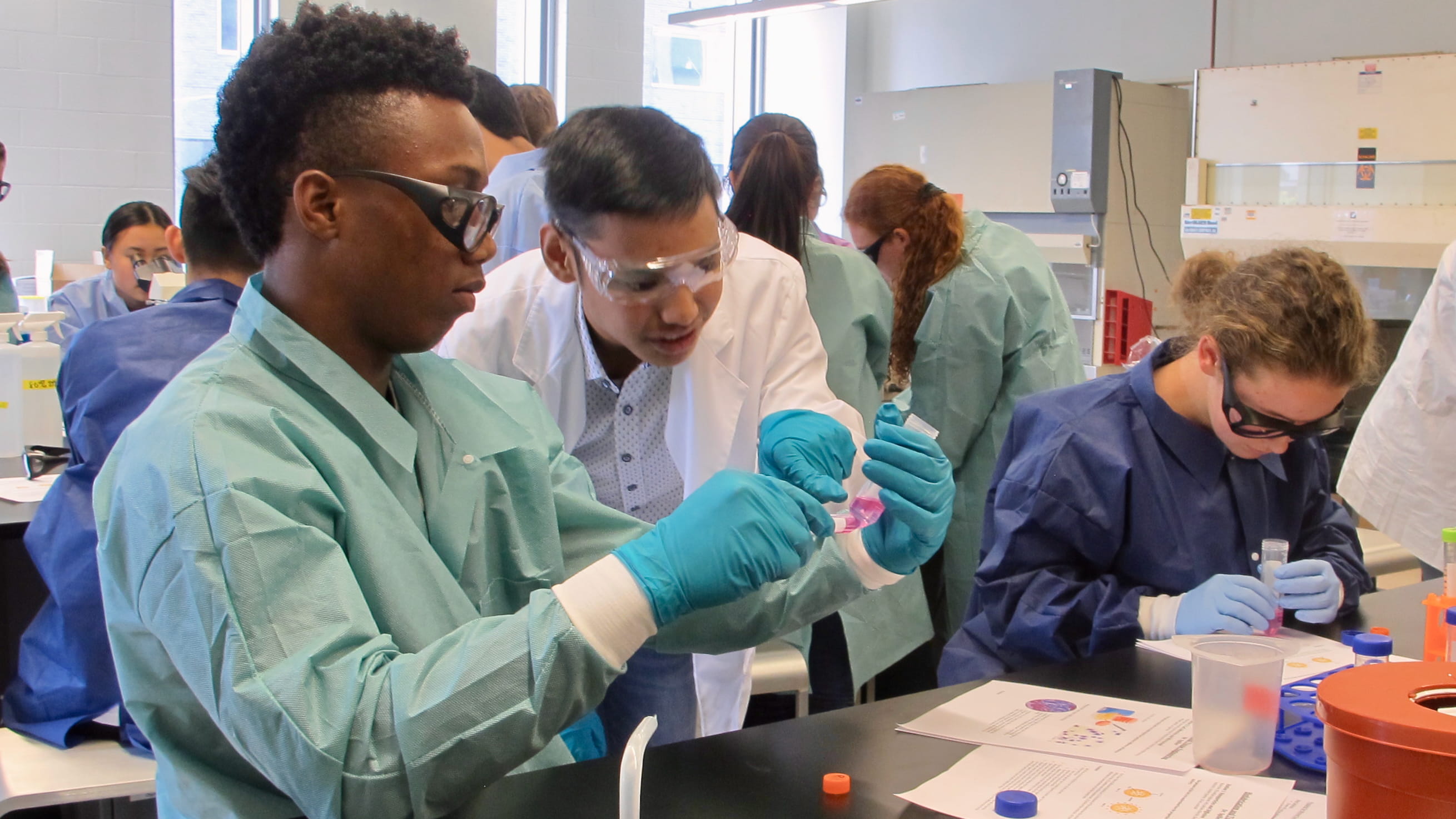New Course Introduces First-Year Students to Growing Field of Cell & Gene Therapy

Kara Spiller, PhD, professor in the School of Biomedical Engineering, Science and Health Systems, has designed a new interdisciplinary course to introduce first-year students to cell and gene therapy, the science behind it and other aspects of this emerging area of the life sciences industry that is playing an increasing role at Drexel.
Spiller, who leads the Biomaterial and Regenerative Medicine Laboratory, created Explorations of Cell & Gene Therapy (BMES T280, CRN35116) to delve into various facets of the field, including the manufacturing and business challenges surrounding it. The course will tap local experts from the cell and gene therapy industry and will include field trips to life sciences companies in Philadelphia, which is nationally recognized as a growing life sciences hub.
“It’s a particularly exciting time for cell and gene therapy in Philadelphia,” Spiller said. “It’s an emerging field and these companies are going to be hiring workers of all levels of education. While we have taught higher-level concepts to graduate and other students, we haven’t taught them to first-year students, and I think we should. It’s a collaborative course with industry and intended to raise students’ awareness of this area and get students excited about it.”
Health Innovation has been identified among the Areas of Excellence and Opportunity (AEOs) at the University, and cell and gene therapy will be a focus of pilot activity in the area. An array of activities will be set in motion through the pilot process, including the development of new experiential courses, research partnerships and community-based projects.
“The importance of the AEO initiative in moving the University forward, remaining competitive and enhancing our reputation can’t be understated,” said Paul E. Jensen, PhD, Executive Vice President and Nina Henderson Provost. “By focusing and strengthening these areas, we can strategically align our resources and harness their potential across academics, research and partnership to produce greater societal impact and better serve our students and partners.”
That Health Innovation along with cell and gene therapy have emerged as a focus for Drexel isn’t surprising. The University has been instrumental in helping to establish University City as an Innovation Neighborhood by partnering in the development of uCity Square and Schuylkill Yards, which cater to startups from a range of industries but many of which are concentrated in life sciences.
Drexel is also involved in two major life sciences developments on campus. In late 2021, Spark announced plans to build a Gene Therapy Innovation Center on 30th Street in Philadelphia, in the heart of Drexel’s campus. This Innovation Center will enable Spark to reach more patients and transform more lives with needed gene therapies.
Spark is a member of the Roche Group, and this more than 500,000 square-foot state-of-the-art facility will serve as the flagship center of excellence for gene therapy manufacturing for Roche globally. Spark and Drexel are currently exploring opportunities to create a premier environment for development of the next generation of life sciences talent in West Philadelphia.
The University also teamed up with Philadelphia-based Gattuso Development Partners to build a $400 million, 11-story, 500,000-square-foot life sciences research building at 3201 Cuthbert St. Once completed, the building will be the largest in the city dedicated to life sciences research and lab space.
To support the influx of new jobs expected across Philadelphia from this burgeoning industry, Drexel has been exploring ways to expose students of all levels to gene therapy work and to prepare and train the current and future workforce for those jobs. That means developing new cutting-edge curricula and courses co-designed with industry partners, as well as experiential learning opportunities, in addition to skill training, certification programs for lab techs and other non-degree positions.
“This is a pilot course that is designed to get our cell and gene therapy partners more involved in education and deepening our relationships with industry,” Spiller said. “We are having them come into our classrooms and share what excites them about the field, the opportunities that are available and challenges that they are facing. Students get to hear it directly from them, and they love this approach.”
Drexel’s proximity to so many gene therapy companies has put the University in a “very unique” position, Spiller said. “It’s time for us to lean into it.”